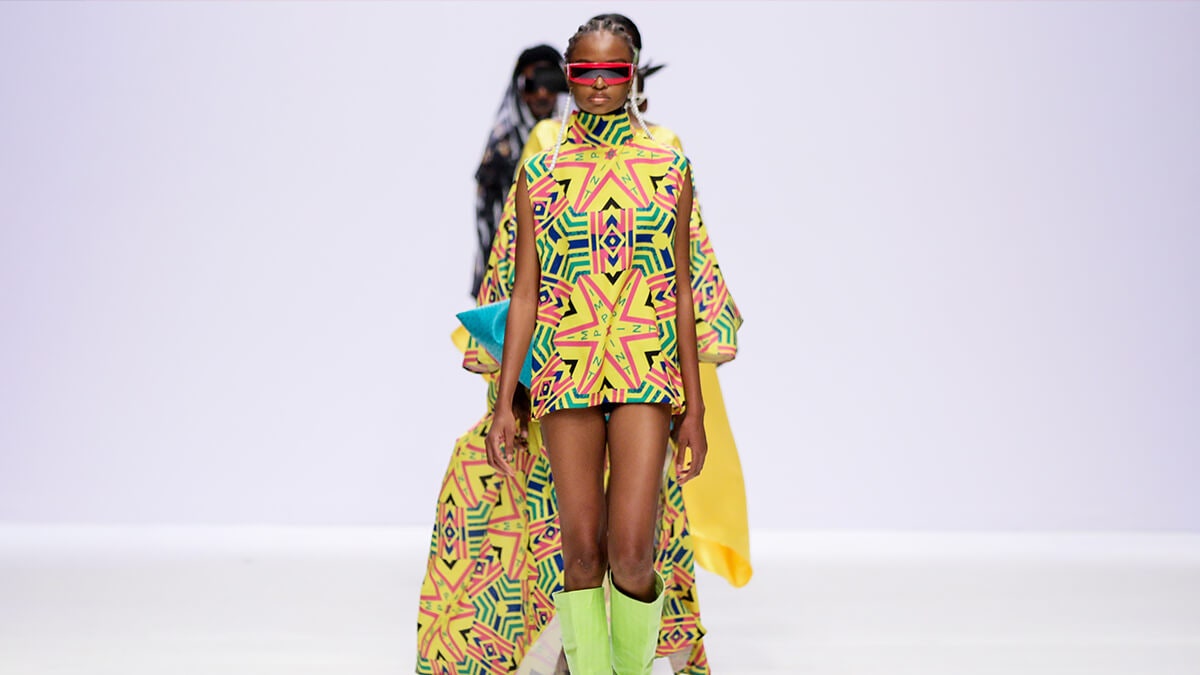Inside Africa’s leading fashion week – Vogue Business

For Jzo founders Olamide Akindeinde and Joseph Ike, the focus was on creating a regal and celestial collection that told the story of Africa. “We are an Africa-centric brand and that is where our inspiration always begins,” says Akindeinde. “We have to take traditional ideas, traditional themes and try to modernise them as much as possible.” Designer Paolo Sisiano also echoes this. “As a designer of African origin, I am trying to stay as global as possible” says Sisiano, who adds that he is attempting to do this by experimenting with colourful prints and a mixture of tailored and loose designs.
Supporting designers pre- and post-fashion week
Securing orders before the end of the buying season is a common pain point for many young and emerging designers, particularly those who are only showcasing in Lagos, says The Folklore founder Amira Rasool, who held a buyer preview 11-14 October, ahead of the fashion week. “We recognise that Lagos Fashion Week comes later in the buying season,” says Rasool. “So we want to be able to do it earlier before retailers run out of budget and could no longer bring people on for SS23.”
Since expanding beyond its multi-brand website, The Folklore, now part of The Folklore Group, is connecting designers with national and international buyers. Brands such as Orange Culture, womenswear brand Onalaja and gender-neutral brand Cute Saint were among brands chosen to virtually present their then upcoming collection to buyers. Rasool says the team were given a deck with information on how to present their collections; guidance on what type of questions to ask buyers; and helped them build line-sheets. Upon reflection, she notes that the preview should have taken place earlier, ideally straight after Paris.
Rasool says this is the direction wholesale buying will gear towards in the near future. “Not everyone is going to be able to make it to Nigeria or South Africa,” she says. “And that’s why the Folklore Connect exists, so that we can try to make it as efficient as possible, and still give [buyers] as much of that in real life experience as possible.”
Although New-York based retailer Moda Operandi was not physically present at Lagos Fashion Week, the company says it will continue to support designers this season — albeit through a tailored trunk show. Moda Operandi first launched its Lagos Fashion Week trunk show in 2020 during the pandemic. “Following our trunk show last year featuring Lisa Folawiyo, Banke Kuku, Studio 189, Onalaja and Abiola Olusola, we were able to write an order for an in-season curation of Lisa Folawiyo,” says Moda Operandi’s contemporary buyer, Kelsey Lyle, and adds that sales for its 2021 Lagos Fashion Week trunk show were up 100 per cent compared to the first Lagos Fashion Week trunk show the year prior. She says the retailer plans to host another curated trunk show for brands including Tia Adeola, Abiola Olusola, Odio Mimonet, Banke Kuku and Imad Eduso, plus a standalone show for Lisa Folawiyo.
Beyond securing buyers and stockists, finance support is needed to support the influx of demand for young designers. The Bestseller Foundation is providing the financial support to help improve the infrastructure for designers as well as the overall fashion week. “We are working quite significantly to see how we use our competences with Bestseller corporate to support the value chain to make sure that Africa and Nigeria doesn’t just become cotton producing but also about high fashion,” says Bestseller Foundations’s Tine Fisker Henriksen ahead of the day two shows.
Comments, questions or feedback? Email us at feedback@voguebusiness.com.
More from this author:
Meet the young designers shaking up sustainable fashion in Africa
Can a Rwandan manufacturing facility boost the ‘Made in Africa’ movement?
Meet the next-gen African designers raising investor capital
Copyright :

